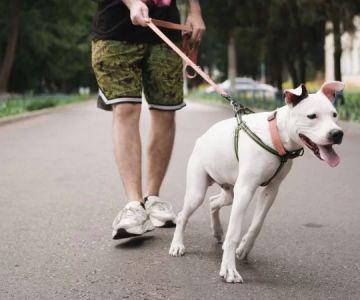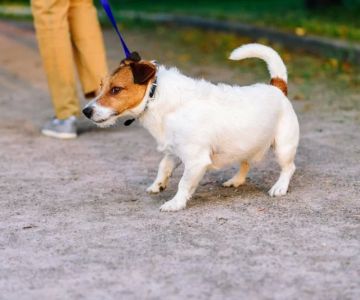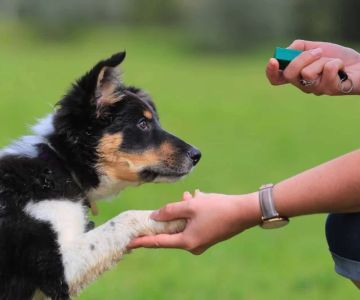How to Prevent Puppy Biting and Teething: A Complete Guide for Dog Owners
As a first-time dog owner, one of the most challenging behaviors I encountered with my new puppy was biting and teething. Like many puppies, my furry friend wanted to explore the world with her mouth, and that meant an increase in nipping at hands, furniture, and anything she could get her paws on. If you're dealing with this stage in your puppy’s life, it’s essential to understand why they do this and how you can prevent it from becoming a habit that carries into adulthood. Let’s dive into some practical tips and tricks on how to prevent puppy biting and manage the teething process effectively.
1. Understand Why Puppies Bite and Teethe
The first step in solving any problem is understanding why it happens. When puppies bite, they are usually exploring their environment. Their mouths are one of their primary ways of interacting with the world. Biting and chewing are natural behaviors for puppies, especially during the teething process, which typically occurs between 3 to 6 months of age. During this time, your puppy's baby teeth will fall out, and adult teeth will begin to emerge. Teething can cause discomfort, and chewing on objects helps alleviate that discomfort.
Furthermore, puppies often engage in biting as a way of seeking attention or playing. It’s important to recognize the difference between playful biting and more aggressive behavior. With the right training and understanding, you can help your puppy navigate this phase without developing bad habits.
2. Provide Chew Toys to Soothe the Teething Pain
When my puppy started teething, I quickly realized that offering her the right chew toys was key to preventing her from biting on inappropriate things like furniture or my hands. Chew toys not only help alleviate the pain from teething, but they also provide a safe outlet for your puppy’s natural chewing instincts. Rubber toys, soft bones, and specially designed teething rings can help soothe sore gums.
Additionally, cold toys can be a great option. I often froze some of her toys or even soaked them in water before freezing them to create a cooling sensation, which was even more soothing. The goal is to give your puppy something they can chew on that will help them focus their energy in the right places. This can reduce the desire to bite or chew on less desirable objects like shoes or wires.
3. Redirect the Behavior with Positive Reinforcement
One of the most effective ways to prevent puppy biting is by redirecting their attention when they begin to nip or chew. For example, if your puppy starts to bite your hands, offer them a chew toy instead. When they grab the toy and start chewing, praise them enthusiastically. This positive reinforcement helps your puppy learn what is acceptable to bite and what isn’t.
Another important aspect of this is consistency. Every time your puppy attempts to bite, redirect them to a toy or a bone. Over time, they will learn that biting humans or furniture is not rewarded, and chewing on appropriate items is the right behavior. Consistency in the correction and reward process is key to success.
4. Use Deterrent Sprays for Biting Furniture
While training your puppy to redirect their biting behavior is vital, you might also encounter situations where they start chewing on your furniture or belongings. For these cases, using deterrent sprays can be very helpful. Deterrent sprays are designed to make objects taste unpleasant, discouraging your puppy from chewing on them.
There are several types of sprays available, such as bitter apple sprays or citrus-based sprays. You can apply them to furniture, shoes, or any other objects that your puppy likes to chew on. When they taste the unpleasant flavor, they will associate the object with a negative experience, and over time, they will avoid chewing on it.
5. Establish a Consistent Training Routine
Consistency is one of the most crucial elements of training a puppy, and this holds true when dealing with biting and teething. Set up a routine that includes regular training sessions. During these sessions, teach your puppy basic commands like “no,” “leave it,” and “sit.” These commands can be helpful in preventing unwanted biting behaviors, especially when your puppy is excited or overstimulated.
Additionally, consistency involves setting boundaries. When your puppy starts to bite, immediately stop the interaction, stand up, and walk away. This teaches them that biting results in the loss of attention or playtime, which they find undesirable. Over time, your puppy will learn that biting results in fewer interactions and that calm behavior gets rewarded.
6. Seek Professional Help if Needed
If your puppy’s biting behavior persists despite your best efforts, it may be time to seek professional help. Consulting a veterinarian or professional dog trainer can provide you with tailored strategies for dealing with persistent biting. They may also help identify if there are underlying health issues or behavioral challenges that need addressing.
In some cases, a trainer can help you identify any mistakes in your training techniques or provide you with more advanced methods for dealing with stubborn biting. Don’t hesitate to reach out for professional advice when needed, as it can save you time and frustration in the long run.
7. Be Patient with the Process
Finally, one of the most important things to keep in mind when dealing with puppy biting and teething is patience. Puppies are still learning how to navigate the world, and their natural instincts to chew and bite are part of their development. The teething phase can be a bit challenging, but with consistency, patience, and the right tools, you will be able to help your puppy grow into a well-behaved adult dog.
As you continue to work with your puppy, remember that every dog learns at their own pace. Don’t be discouraged if progress seems slow. With persistence and love, your puppy will eventually learn to manage their biting and teething behavior, making for a happier, calmer household.











